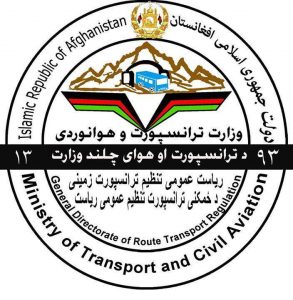Corruption in Ministry of Transport; When the Minister is Plagued
When the first person and major official in an administration publicly complains about himself and his staff through the media, it means that the source water is muddy.

Corruption is a familiar phenomenon with the people and the government of Afghanistan and many factors have been defined for it. But a few days ago, the Minister of Transport and Civil Aviation said 60 to 70 percent of the ministry’s revenue is wasted annually due to lack of an electronic system collecting the revenues.
Wasting 70 percent of a ministry’s revenue is seriously shocking in a country where there is genuinely state sovereignty and decisive supervision. Such news should be taken seriously and it is necessary for the authorities to take practical action in finding the truth and factors that squander national capitals.
Three elements seem significant analyzing this shocking news:
The minister himself raised the issue. A minister is the most responsible, prestigious and important person in a ministry. When the first person and major official in an administration publicly complains about himself and his staff through the media, it means that the source water is muddy and corruption has a deeper, stronger and higher root. The second meaning is the weakness of the minister in terms of his administrative and political prestige. In other words, there are hands that have previously placed their men within the ministry, and the minister is not able to counter them due to having strong political backing from other sources.
Although it is very important and essential that state offices be upgraded and standardized, this will prevent the waste of time, reduce corruption, handle cases and social order; but electronizing the system alone cannot reduce the trend of corruption as expected. Because, as much as the standardization prevents the corruption, national commitment also plays a role in this regard. National commitment should be strengthened to fight corruption. It is necessary to create and strengthen the mindset of employees and citizens in the fight against corruption. This requires a cultural and mental activity. We must confess that we have not worked hard in this field and even in some cases, we have not done anything.
Corruption is not just summarized in the ministry of transport. This is a national and universal phenomenon and even exists in many developed countries. In other words, Corruption is like injustice everywhere in the world. Until humans exist, corruption cannot be cut to zero, but scientific evidence suggests this can be brought to zero through will, commitment, loyalty to the homeland, and ongoing cultural, legal and judicial activities.
Yet, if there is a real intention of seriously reducing corruption in the country, we should focus on three basic elements: practical cultural work, having a national commitment and the implementation of impartial legal procedures; otherwise, corruption will become a big dragon.
Sayed Abdul Basir Mesbah – University professor
Translated by Taher Mojab